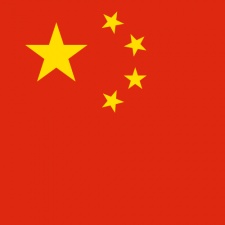Although China is and remains a growing market for a variety of domestic and foreign businesses, it has become increasingly notorious for its harsh and often arbitrarily enforced regulations, particularly on the media. Often lacking clear and concise guidelines, film, television, games and more can struggle to make an impact when they fall foul of regulators for any number of reasons. One market that’s struggling, and adapting, is mobile according to data derived from a new report on the regulatory situationby Newzoo.
China has seen numerous success stories arise in its mobile gaming industry, such as MihoYo’s Genshin Impact, and it has also become the largest market by far for mobile gaming. However, regulations can often be difficult for companies to predict, and introductions can be abrupt.
Nearly all games including mobile games which feature in-app purchases require a licence from the NPPA (National Press and Publication Administration) to operate in China. However ‘licensing freezes’ aimed at allowing the authorities to keep the market in check, effectively halts the production and release of such games. Such freezes are still a major issue with virtually no games approved in periods lasting for months, 2022 marks the second such extended freeze.
What do these regulations mean for mobile?
Regulations mean that mobile has faced an increasingly fraught year. Foreign companies have naturally always had a difficult time breaking into the Chinese market, but even domestic companies now struggle under the licensing freeze and tighter regulations. Compared to 2021’s 679 total domestic games approved for licences, only 314 have been approved this year. Whilst the all time high of 9,177 was in the much less stringently regulated year of 2017. Meanwhile no foreign games of any kind have been approved for a licence all through 2022.
Regulations against certain depictions and sensitive topics can also be detrimental to game development and live services. Of course, political topics are typically heavily censored in Chinese media, but other aspects that draw regulatory criticism can necessitate expensive and time consuming changes. Without having official advice on what is and isn’t acceptable, companies are forced to develop their own means of anticipating opaque regulations.
As the report points out, Honor of Kings had to significantly rework a cosmetic for a bike-riding character due to concerns it looked ‘unsafe’, which they resolved by adding a helmet and vehicle licence plate. Meanwhile PUBG Mobile was forced to rebrand as Peacekeeper Elite, and significantly rework its setting from an active war zone to a military training exercise.
As the report also notes, “All pay-to-play (premium) mobile games or games featuring IAP (in-app purchase) monetization, must obtain a game licence before publishing. However, ad-based or IAA (in-app ads) games that monetize only via ads do not need approval.” These regulations are bound to change, but for the moment, despite the stringent regulations on console and PC games, mobile games which monetize via ads are virtually free to do as they please.
However, even these games face crackdowns, often with financially crippling results, as under current laws Chinese regulators can confiscate all revenue and find a company up to five or 10 times its operating revenue, as it does for consoles and PC. The first such crackdown hit three IAA (in-app advertising) based games in June 2022. Aside from licensing freezes, this kind of unpredictable marketplace means that even a relatively untapped market for foreign companies, and one which has led the way in mobile for years, can be seen as unstable for investment in the long term.
Essentially, although mobile remains a more open marketplace for games in China, it seems clear that at some point regulators will begin to more heavily scrutinise these businesses. The more companies try to evade regulators, the more attention they’ll attract. In the wake of declining revenue for the previously lucrative Chinese market, the effect this will have on Chinese firms is likely to drive them into other markets, or otherwise severely hamper their business.

